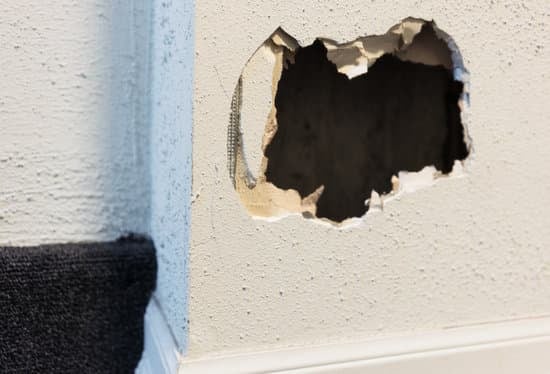Are you looking to embark on a home improvement project but unsure of how to finance it? Understanding how to finance home improvement loans is crucial in ensuring your renovation plans come to fruition. Whether you’re considering a small upgrade or a major overhaul, having a clear grasp of financing options can make all the difference in achieving your dream home.
Before diving into any renovation, it’s essential to assess your home improvement needs thoroughly. By determining the scope and cost of the renovations, you can better understand the financial resources required. From updating your kitchen to adding an extra room, knowing what you need will guide you in selecting the appropriate financing option for your project.
Exploring different financing options such as personal loans, home equity loans, or utilizing credit cards can provide flexibility in funding your home improvement project. However, understanding interest rates and repayment terms is vital in making an informed decision that aligns with your financial goals. By comparing and evaluating these factors, you can choose a loan that suits your budget and timeline for repayment.
Assessing Your Home Improvement Needs
When considering taking on a home improvement project, the first step is to assess your needs and determine the scope of the renovations. This involves evaluating what areas of your home require upgrades or repairs and outlining the specific changes you want to make.
Additionally, it’s important to calculate the estimated cost of the project to have a clear understanding of how much financing you will need. Whether it’s renovating your kitchen, adding a new bathroom, or improving your outdoor space, having a detailed plan in place will help guide you through the financing process.
Once you have identified the scope of your home improvement project and estimated the costs involved, the next crucial step is exploring different financing options. There are various methods available for financing home improvements, such as personal loans, home equity loans, and using credit cards.
Personal loans offer flexibility in terms of repayment schedules and typically have fixed interest rates. On the other hand, home equity loans allow you to borrow against the equity in your home and may carry lower interest rates compared to personal loans.
Interest rates and loan terms play a significant role in determining the overall cost of financing your home improvement project. Before committing to a specific loan option, it’s essential to compare interest rates from different lenders and understand how they will impact your monthly payments.
Additionally, consider the repayment terms offered by each loan product to ensure they align with your financial goals and affordability. By being diligent in researching interest rates and loan terms, you can make an informed decision on how to finance home improvement loans that best suit your needs.
| Loan Option | Interest Rate |
|---|---|
| Personal Loan | 6%-12% |
| Home Equity Loan | 3%-7% |
| Credit Card | 15%-25% |
Exploring Financing Options
When it comes to financing home improvement projects, understanding the available options is crucial to make informed decisions. There are various methods of financing, such as personal loans, home equity loans, and credit cards, each with its own advantages and considerations. Here, we will explore these different options to help you determine the best way to fund your renovation plans.
Personal Loans
Personal loans are unsecured loans that can be used for a variety of purposes, including home improvements. They typically have fixed interest rates and terms, making it easier to budget for monthly payments. However, personal loans may have higher interest rates compared to secured loans like home equity loans. To find the best personal loan for your project, compare offers from multiple lenders and consider factors such as interest rates, fees, and repayment terms.
Home Equity Loans
Home equity loans allow homeowners to borrow against the equity in their property. These loans generally have lower interest rates than personal loans because they are secured by the value of the home. Home equity loans also offer the benefit of potential tax deductions on the interest paid. However, failing to repay a home equity loan could result in foreclosure, so it’s important to carefully consider your ability to make payments before taking out this type of loan.
Credit Cards
Using a credit card to finance home improvement projects can be convenient and flexible. Many credit cards offer rewards or cash back on purchases which can be beneficial if you plan on using them for renovation expenses.
However, credit cards tend to have higher interest rates than other types of financing and carrying a balance could lead to significant debt over time. If you choose to use a credit card for your home improvements, aim to pay off the balance quickly to avoid accumulating high-interest charges.
Exploring these different financing options – personal loans, home equity loans, and credit cards – will help you determine which method aligns best with your financial situation and renovation needs when considering how to finance home improvement loans.
Understanding Interest Rates and Terms
When it comes to financing home improvement projects, understanding interest rates and repayment terms is crucial in making informed decisions that will impact your finances in the long run. Interest rates play a significant role in determining the overall cost of borrowing money for renovations, while repayment terms dictate how long you have to pay back the loan. By evaluating these factors carefully, you can choose the best financing option that suits your budget and financial goals.
One of the key aspects to consider when exploring how to finance home improvement loans is the difference between fixed and variable interest rates. Fixed interest rates remain constant throughout the term of the loan, providing stability in your monthly payments.
On the other hand, variable interest rates fluctuate based on market conditions, which can lead to unpredictable changes in your monthly payments. Understanding how each type of interest rate works will help you make an informed decision based on your risk tolerance and financial situation.
Repayment terms also play a vital role in managing home improvement loans effectively. Shorter loan terms typically come with higher monthly payments but lower overall interest costs, while longer loan terms provide more flexibility with lower monthly payments but may result in paying more interest over time.
It is essential to assess your financial situation and future goals to determine which repayment term aligns best with your needs. By carefully evaluating both interest rates and repayment terms, you can make a well-informed decision on how to finance your home improvement project efficiently.
Eligibility Requirements
When considering how to finance home improvement loans, it is crucial to understand the eligibility requirements for different types of loans available. Each financing option may have specific criteria that borrowers need to meet in order to qualify for the loan. For example, personal loans typically require a good credit score and stable income, while home equity loans may require you to have significant equity in your property.
In addition to credit score and income stability, lenders may also look at other factors such as debt-to-income ratio, employment history, and overall financial stability when determining eligibility for a home improvement loan. Some lenders may also require an appraisal of your property to assess its value before approving a loan. It is important to gather all necessary documentation and information beforehand to streamline the application process.
Furthermore, understanding the eligibility requirements for different types of home improvement loans can help you narrow down your options and choose the financing option that best suits your financial situation. By knowing what lenders look for in potential borrowers, you can better prepare yourself to meet their criteria and increase your chances of getting approved for a loan.
Researching and comparing different lenders and loan products can also help you find the most affordable and favorable terms for your home renovation project.
Applying for a Loan
When it comes to financing home improvement projects, applying for a loan is often a necessary step to bring your renovation plans to life. By understanding the process of applying for a home improvement loan, you can navigate the financial aspect of your project with confidence. Here is a step-by-step guide on how to apply for a home improvement loan:
- Research Lenders: Start by researching different lenders that offer home improvement loans. Compare interest rates, terms, and eligibility requirements to find the best option for your financial situation.
- Check Your Credit Score: Before applying for a home improvement loan, check your credit score. A higher credit score can improve your chances of approval and help you qualify for better loan terms.
- Gather Required Documents: To apply for a home improvement loan, you will typically need documents such as proof of income, tax returns, bank statements, and information about the renovation project.
Applying for the Loan
- Complete the Application: Fill out the lender’s application form with accurate information about your finances and the renovation project.
- Submit Supporting Documents: Along with the application form, submit all required documents to support your income, assets, and the scope of the renovations.
- Wait for Approval: After submitting your application and supporting documents, wait for the lender to review your information and make a decision on your loan application.
By following these steps to apply for a home improvement loan, you can streamline the process and increase your chances of securing financing for your renovation project. Remember to compare different lenders and loan options to find the best fit for your needs.
Tips for Getting Approved
When it comes to tackling home improvement projects, securing financing is often a crucial step in bringing your visions to life. Whether you’re looking to renovate your kitchen, add an extra bedroom, or upgrade your outdoor space, knowing how to finance home improvement loans can make all the difference in making your dreams a reality. In this section, we will discuss some key strategies that can help increase your chances of approval for a home improvement loan.
Improve Your Credit Score
One of the most important factors that lenders consider when evaluating loan applications is your credit score. A higher credit score indicates a lower risk for lenders, making you more likely to be approved for a loan with favorable terms. To improve your credit score, focus on paying off existing debts, avoiding late payments, and keeping your credit utilization low. You can also check your credit report for any errors that may be dragging down your score.
Shop Around for Lenders
Different lenders offer various loan products with varying interest rates and terms. By shopping around and comparing offers from multiple lenders, you can find the best deal that suits your financial needs. Consider traditional banks, credit unions, online lenders, and peer-to-peer lending platforms when exploring financing options for your home improvement project. Remember that getting pre-qualified from multiple lenders does not affect your credit score, so take advantage of this opportunity to find the most competitive rates.
Provide Proof of Income and Assets
Lenders will typically require documentation of your income and assets to assess your ability to repay the loan. Be prepared to provide recent pay stubs, tax returns, bank statements, and other financial records when applying for a home improvement loan. Having a stable source of income and valuable assets can strengthen your application and demonstrate to lenders that you are a responsible borrower capable of meeting repayment obligations.
By following these tips and implementing strategies to bolster your financial profile, you can increase your chances of getting approved for a home improvement loan that fits your budget and goals. Remember to thoroughly research different financing options, maintain a good credit score, shop around for competitive rates, and provide the necessary documentation to support your application. With careful planning and preparation, you can navigate the process of securing funding for your home renovation projects successfully.
Managing Loan Repayments
When it comes to financing home improvement projects, managing loan repayments is a crucial aspect that homeowners need to consider. Creating a solid repayment plan and budgeting for the loan payments can help you stay on track with your finances and ensure that you are able to make timely payments without straining your budget. Here are some tips on how to effectively manage loan repayments for your home improvement project:
- Assess Your Financial Situation: Before taking out a home improvement loan, take stock of your current financial situation. Evaluate your income, expenses, and savings to determine how much you can comfortably afford to allocate towards loan repayments each month.
- Establish a Realistic Budget: Once you have assessed your financial situation, create a realistic budget that includes all of your monthly expenses as well as the anticipated loan payments. Make sure to factor in any potential fluctuations in income or unexpected expenses to ensure that you can still afford the loan payments even in challenging times.
- Automate Payments: To avoid missing any loan payments and incurring late fees or penalties, consider setting up automatic payments for your home improvement loan. This can help streamline the repayment process and ensure that you stay on top of your financial obligations.
Additionally, it is important to regularly review your budget and make adjustments as needed based on any changes in your financial situation. By staying proactive and organized with managing your loan repayments, you can successfully navigate the process of financing your home improvement project without putting unnecessary strain on your finances.

Conclusion
In conclusion, financing home improvement projects is a crucial step in turning your renovation dreams into reality. By assessing your needs, exploring various financing options, understanding interest rates and terms, meeting eligibility requirements, applying for a loan, and managing repayments efficiently, you can successfully finance your home improvement endeavors.
When considering how to finance home improvement loans, it is essential to research and compare different financing methods like personal loans, home equity loans, and credit cards to find the best option that suits your needs and financial situation. Understanding the impact of interest rates and repayment terms on your budget is also important in making an informed decision.
Lastly, by following the tips for getting approved and creating a solid repayment plan for your loan, you can navigate the financing process smoothly. Remember to stay organized, communicate effectively with lenders, and monitor your budget closely to ensure successful completion of your home improvement project. With careful planning and proactive financial management, you can achieve the renovations you envision for your home.
Frequently Asked Questions
What Credit Score Do You Need for a Home Improvement Loan?
The credit score required for a home improvement loan typically varies depending on the lender. Generally, a good credit score (around 650 or higher) is recommended to qualify for competitive interest rates and favorable terms. However, some lenders may offer loans to those with lower scores, but usually at higher rates.
Can I Get a Loan to Improve My Home?
Yes, it is possible to get a loan to improve your home. There are various options available such as personal loans, home equity loans, home equity lines of credit, and FHA 203(k) renovation loans. It’s important to carefully consider your financial situation and research the best option for your needs.
Are Renovation Loans a Good Idea?
Renovation loans can be a good idea for homeowners looking to improve their homes without depleting their savings. These loans can provide funds for repairs or upgrades that can increase the value of the property. However, it’s crucial to assess the costs involved, including interest rates and fees, before committing to a renovation loan.

I’m thrilled to have you here as a part of the Remodeling Top community. This is where my journey as an architect and remodeling enthusiast intersects with your passion for transforming houses into dream homes.





